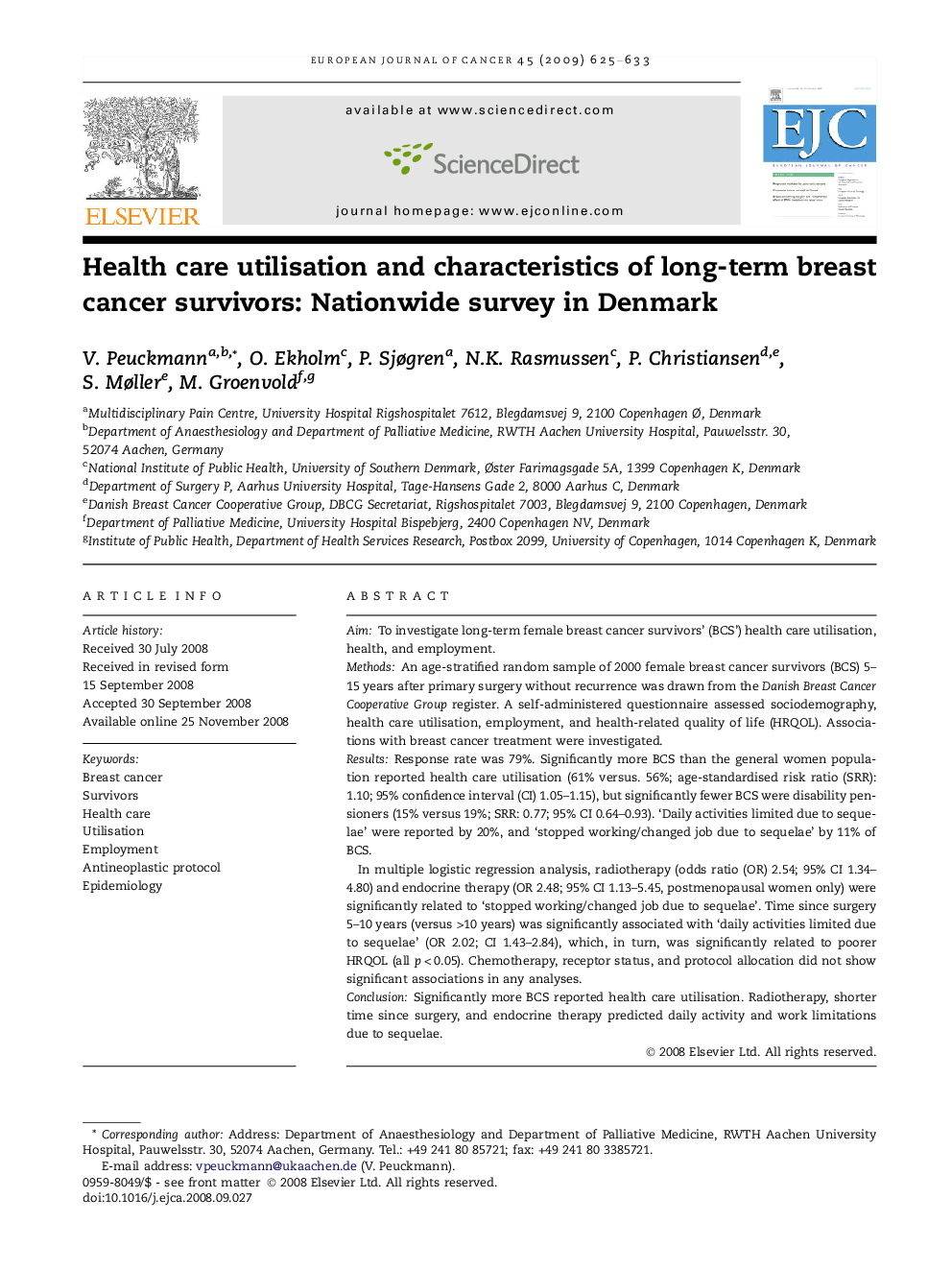| Article ID | Journal | Published Year | Pages | File Type |
|---|---|---|---|---|
| 2125528 | European Journal of Cancer | 2009 | 9 Pages |
AimTo investigate long-term female breast cancer survivors’ (BCS’) health care utilisation, health, and employment.MethodsAn age-stratified random sample of 2000 female breast cancer survivors (BCS) 5–15 years after primary surgery without recurrence was drawn from the Danish Breast Cancer Cooperative Group register. A self-administered questionnaire assessed sociodemography, health care utilisation, employment, and health-related quality of life (HRQOL). Associations with breast cancer treatment were investigated.ResultsResponse rate was 79%. Significantly more BCS than the general women population reported health care utilisation (61% versus. 56%; age-standardised risk ratio (SRR): 1.10; 95% confidence interval (CI) 1.05–1.15), but significantly fewer BCS were disability pensioners (15% versus 19%; SRR: 0.77; 95% CI 0.64–0.93). ‘Daily activities limited due to sequelae’ were reported by 20%, and ‘stopped working/changed job due to sequelae’ by 11% of BCS.In multiple logistic regression analysis, radiotherapy (odds ratio (OR) 2.54; 95% CI 1.34–4.80) and endocrine therapy (OR 2.48; 95% CI 1.13–5.45, postmenopausal women only) were significantly related to ‘stopped working/changed job due to sequelae’. Time since surgery 5–10 years (versus >10 years) was significantly associated with ‘daily activities limited due to sequelae’ (OR 2.02; CI 1.43–2.84), which, in turn, was significantly related to poorer HRQOL (all p < 0.05). Chemotherapy, receptor status, and protocol allocation did not show significant associations in any analyses.ConclusionSignificantly more BCS reported health care utilisation. Radiotherapy, shorter time since surgery, and endocrine therapy predicted daily activity and work limitations due to sequelae.
